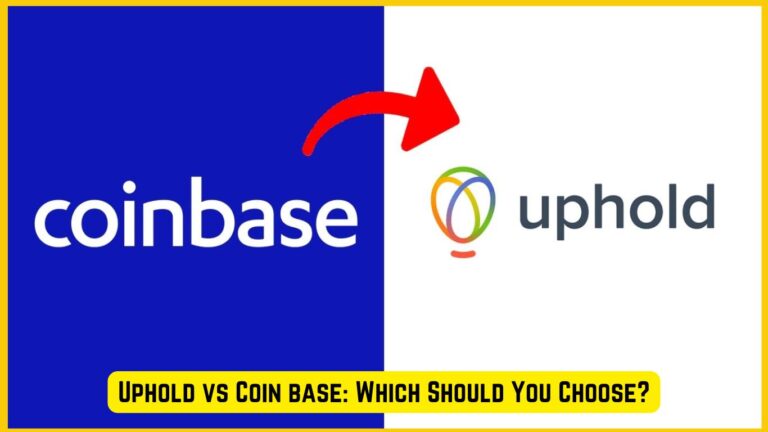
Learn Where and How to Trade Spot Bitcoin ETFs
Which States Don’t Tax Social Security Benefits? Investing in Bitcoin is now easier for traditional investors looking to get into the crypto space after the Securities and Exchange Commission (SEC) recently approved a Bitcoin exchange-traded ETF.
It’s just like buying any other ETF or security. Spot Bitcoin ETFs are available on a variety of traditional platforms that offer popular services like stock and options trading, retirement planning, advisory services, and investments.
These ETFs, which trade on traditional exchanges like the New York Stock Exchange and Nasdaq, allow investors to take advantage of the investment potential of investing in Bitcoin without having to own Bitcoin or understand how cryptocurrency platforms work. Before investing, you need to understand how ETFs work and the risks involved.
How to Buy the Spot Bitcoin ETF?

The Spot Bitcoin ETF is now available for trading on many online brokerage and robo-advisor platforms.
These new ETFs can also be used in many retirement accounts, such as Bitcoin IRAs, traditional IRA and Roth IRA accounts, and 401(k) plans.
When choosing a Bitcoin ETF, investors should check the associated fees. Some companies now offer discount rates to encourage investment. For example, the VanEck Bitcoin ETF (HODL) will waive promotional fees through March 31, 2025, or until its assets under management (AUM) reach $1.5 billion.
Platforms offering Bitcoin ETF fee waivers are competing for investors, and the fee waivers are only temporary.
High management fees, such as the 1.50% charged by Greyscale, can eat into your ETF profits.
Platforms for Investing in Spot Bitcoin ETFs
- Self-Directed Brokers
- Fidelity
- Robinhood
- Charles Schwab
- ETRADE
- Interactive Brokers
- eToro
- tastytrade
- Lightspeed
- Robo-Advisor
- Sofi Automated Investing
Steps to Invest in Spot Bitcoin ETF
Investing in Bitcoin ETF requires a proper account like the one listed above, which you can usually open in 30 minutes or less. Creating an account is easy and can usually be done online.
Open a brokerage account: Choose a company that offers Bitcoin ETFs and open a brokerage account online.
Fund your account: Many brokerages allow you to fund your account from another brokerage firm or bank account. Make sure you have enough money in your account to cover the cost of your ETF shares, any additional fees, and commissions.
Research existing Bitcoin ETFs: There are currently 11 Bitcoin ETFs approved by the U.S. Securities and Exchange Commission (SEC):Also check the other assets included in the ETF and see if the issuer behind it is reputable. and shows a different price for each quote.
Choose a Bitcoin ETF that fits your budget and investment goals. You can choose between a market order (buy an ETF in minutes) or a limit order (trade at a price you specify in advance). and follow Bitcoin-related news, as this often affects the volatility of Bitcoin ETFs.
The Benefits of Trading Spot Bitcoin ETFs

The launch of Spot Bitcoin ETFs meets the need for individuals and institutions to invest in Bitcoin in a controlled and easy-to-use way. Holds Bitcoin.
Here are the benefits investors can get by investing in Bitcoin ETFs. . You don’t have to register on a cryptocurrency exchange or worry about wallet security and other tracking issues. Companies that set up Bitcoin ETFs provide the product needed to trade and provide tight spreads, thereby increasing financial returns.
Regulatory Considerations: Spot Bitcoin ETFs are more tightly regulated assets than cryptocurrencies. This regulatory oversight provides Bitcoin ETF investors with a greater layer of protection than is typically available on many less-regulated cryptocurrency exchanges. Tax laws for ETFs vary from country to country. In many countries, they are treated like any other valuable asset. For example, you will pay less in taxes for holding a Bitcoin ETF than you would otherwise pay for cryptocurrencies because you will hold the ETF for a longer period of time. The IRS’s tax rules regarding capital gains and losses mean that you will pay less if you hold an asset like a Bitcoin ETF for more than a year. Disadvantages
There are some risks to investing in the Bitcoin ETF space. Bitcoin ETFs are also subject to the same regulatory framework that applies to digital assets, especially cryptocurrencies.
Additional risks to consider include:
Cryptocurrency volatility
In recent years, the cryptocurrency market has experienced greater volatility than the U.S. stock market. Owning a Bitcoin ETF does not protect you from this change. Major events such as the 2024 Bitcoin halving and fear, uncertainty, and doubt (FUD) can cause the value of your investment to fluctuate in the short term.
On January 10, 2024, on the eve of the SEC’s approval of the Bitcoin ETF, a fake tweet from the SEC caused Bitcoin to rise from $46,800 to $47,860 in a matter of minutes, and X’s account was subsequently compromised by the SEC. The SEC is still not happy with cryptocurrency investments and may change its stance on the asset class.
Security Security
The underlying Bitcoin in your ETF is held in custody by at least one participant. If one of your participants gets hacked, the security of your investment could be affected. For example, BlackRock’s Bitcoin ETF, the iShares Bitcoin Trust (IBIT), is offered by BlackRock, but Coinbase holds Bitcoin. There could be risks.
Alternatives to Spot Bitcoin ETFs
Spot Bitcoin ETFs are a new asset class. While this is exciting, there are other ways for anyone looking to invest in Bitcoin to do so. Bitcoin ETFs are more volatile than traditional ETFs and could lead to regulatory challenges. Here’s how to invest in Bitcoin directly or indirectly without buying a Bitcoin ETF.
Buy Bitcoin Directly
Buying Bitcoin directly is the most direct way to own the cryptocurrency that can’t be obtained through a Bitcoin ETF. However, to buy Bitcoin directly, you’ll need to understand how Bitcoin works, determine the custody method used to store your assets, and choose an exchange or wallet to make your purchase.
Owning Bitcoin gives you more flexibility in how you use it, but it also gives you more government control.
Investing in Cryptocurrency Company Stocks

Another way to gain exposure to cryptocurrencies is by purchasing cryptocurrency company stocks. Popular companies include Riot Platforms, Coin base, and MicroStrategy.
Cryptocurrency-related products are often linked to market movements and can create some volatility for investors. Bitcoin ETFs, such as Grayscale Bitcoin Trust (GBTC), have been around since 2013.
Spot Bitcoin ETFs are a new type of investment that allows investors to invest in Bitcoin at a lower discount. They are available through pension funds, automated investment platforms (robo-advisors), and online brokerages on the open market, but not on cryptocurrency exchanges.
To get a Bitcoin ETF, open an account with a brokerage platform, deposit funds, monitor the ETF regularly, and be aware of fees and commissions. > Bitcoin is the first virtual, decentralized cryptocurrency traded on a peer-to-peer network. To ensure transparency and reduce intermediaries, transactions on the network are recorded on a distributed ledger called the blockchain.
Used for payment, investment, and speculation purposes, Bitcoin was created in January 2009 by an anonymous person named Satoshi Nakamoto.
FAQ’s
What is a Spot Bitcoin ETF?
This is different from a Bitcoin futures ETF, which is based on a derivative contract for its value. Spot Bitcoin ETFs contain underlying Bitcoins that are securely stored in vaults by the company that issued the ETF.
What does BTC mean?
BTC is the ticker symbol of Bitcoin, the abbreviation and representation of cryptocurrency in the financial market. Traders can search for Bitcoin prices using the ticker symbol BTC and find Bitcoin-related news on their favorite platforms or research websites.
Should You Buy Spot Bitcoin Now?
But like any investment, Bitcoin’s potential for positive returns varies over time. Bitcoin’s price fluctuates widely and is affected by market sentiment and other factors. If you believe in its long-term potential as a digital currency and valuable retail asset, it may be a good time to buy given its track record of growth. However, caution should be exercised against short-term volatility that could have negative consequences for risk-averse investors.





